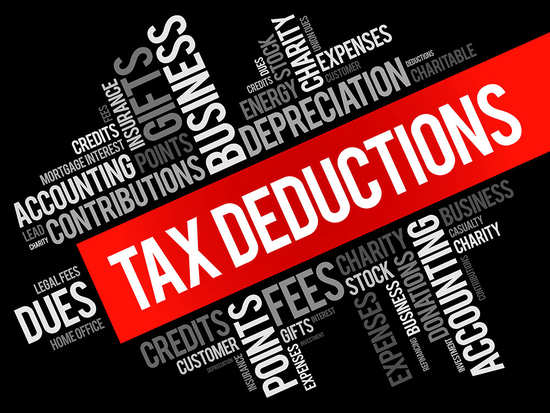
A key portion of the new Tax Cuts and Jobs Act (TCJA) is Section 199A and its deduction of qualified business income. Section 199A allows taxpayers other than corporations a deduction of 20 percent of qualified business income that is earned in a qualified trade or business, though this has some limitations. There are both positive and negative aspects to the changes depending on your situation.
Tax Adviser outlines the following crucial points about Section 199A:
- The deduction is limited to the greater of
(1) 50% of the W-2 wages with respect to the trade or business or
(2) the sum of 25% of the W-2 wages, plus 2.5% of the unadjusted basis immediately after acquisition of all qualified property (generally, tangible property subject to depreciation under Sec. 167). In addition, the deduction also may not exceed (1) taxable income for the year over (2) net capital gain plus aggregate qualified cooperative dividends.
- The deduction does not include the trade or business of performing services as an employee and "specified service" trades or businesses: those involving the performance of services in law, accounting, financial services, and several other enumerated fields, or where the business's principal asset is the reputation or skill of one or more owners or employees.
- Qualified business income is the net amount of qualified items of income, gain, deduction, and loss with respect to a qualified trade or business that are effectively connected with the conduct of a business in the United States.
However, some types of income, including certain investment-related income, reasonable compensation paid to the taxpayer for services to the trade or business, and guaranteed payments, are excluded from qualified business income.
In addition:
- The W-2 wage limitation does not apply to taxpayers with taxable income of less than $157,500 for the year ($315,000 for married filing jointly) and is phased in for taxpayers with taxable income above those thresholds. Income from specified service businesses is not excluded from qualified business income for taxpayers with taxable income under the same threshold amounts.
- The new law also reduces the threshold at which an understatement of tax is substantial for purposes of the accuracy-related penalty under Sec. 6662 for any return claiming the deduction, from the generally applicable lesser of 10% of tax required to be shown on the return or $5,000 before the new law, to 5% of tax required to be shown on the return or $5,000.
Quick Read Buzz notes the following key takeaways about Section 199A and notes that the TCJA places a weightier importance on wages:
- Wages will become more important, specifically:
- Proper classification of employees versus independent contractors.
- Remember, the IRS requires S corporations to pay reasonable compensation to shareholders who provide substantial services. Expect more IRS scrutiny on reasonable compensation; for example, if officers’ compensation decreased from say, $300,000 historically, to $200,000, it may draw IRS scrutiny. Currently, sole proprietorships and single member LLCs are not subject to reasonable compensation. This may change upon further issuance of IRS guidance.
- W-2 wages are wages paid by the business or a separate company set up by the shareholders to pay wages (company paymaster); and, it most likely will include W-2 wages via professional employer organization (PEO) arrangements (in other words, outsourced staffing).
- Note: It is recommended that the business have a written agreement with the issuer of the W-2 (PEO) that the business will be using the W-2 wages for the section 199A deduction since both firms cannot use them.
Another key point noted by Quick Read Buzz: the 199A deduction is a decrease in taxable income, not a decrease in adjusted gross income. (This shares similarities to the personal exemption that was repealed in 2017.)
As you consider how Section 199A will affect you and your business, keep in mind that this article only highlights some key points of this topic. It does not constitute comprehensive or actionable advice. It is imperitive that you consult with your own legal and tax professionals before taking actions related to the new Section 199A provisions.
